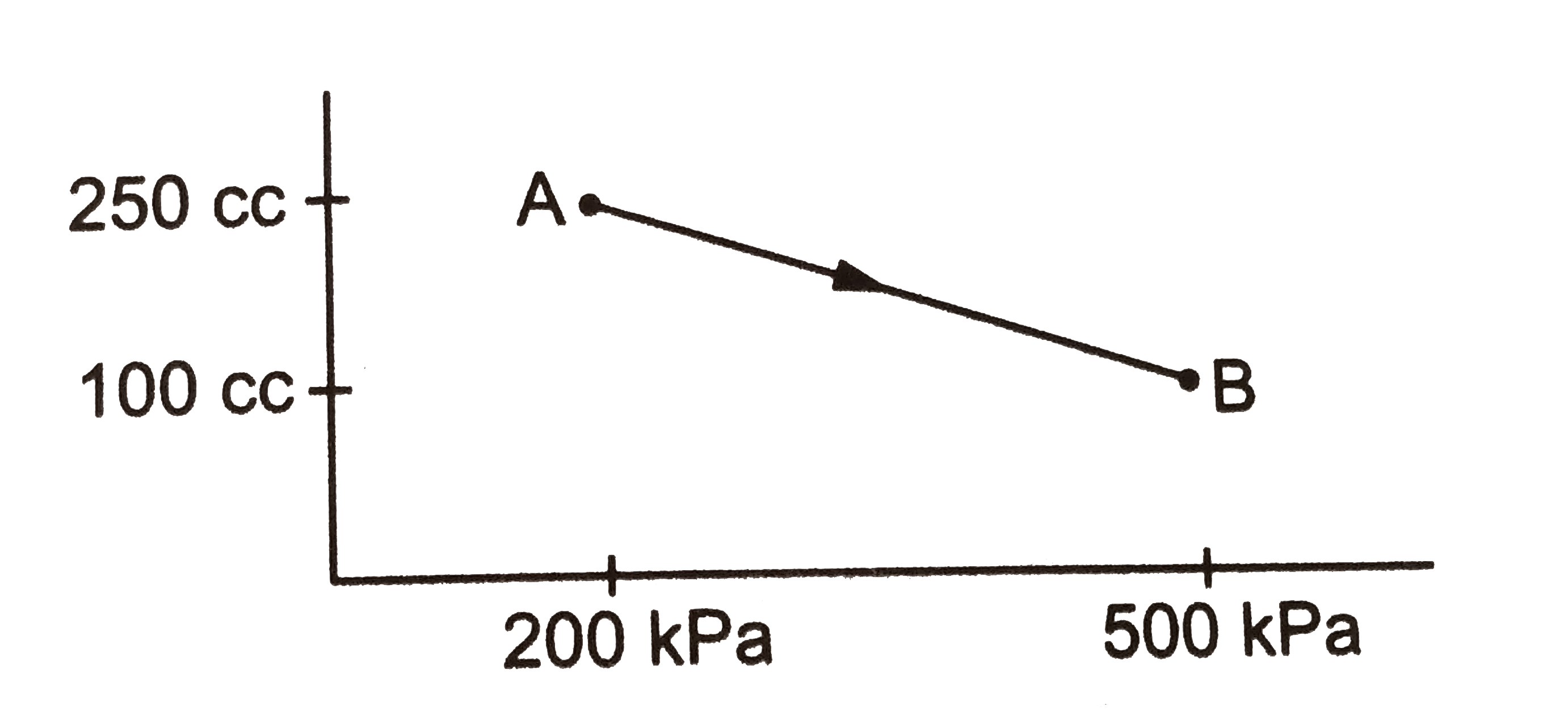Statement I: When an ideal gas is taken from a given thermodynamics state A to another given thermodynamic state B by any polytropic process, the change in the internal energy of the system will be the same in all processes.
Statement II: Internal energy of the gas depends only upon its absolute tmeperature.
Statement I: is true, Statement II is true and Statement II is the correct explanation for Statement I.
Statement I: is true, Statement II is true and Statement II is NOT the correct explanation for Statement I.
Statement I is true, Statement II is false.
Statement I is false, Statement II is true.
The correct Answer is:C
Any given thermodynamics state has a definite temperature T. The internal energy of a system in an ideal gas is a function of only the absolute temperature and is independent of its pressure and volume . The internal energy per mole of a gas is directly proportional to its absolute temperature.
Topper's Solved these Questions
- KINETIC THEORY OF GASES AND FIRST LAW OF THERMODYNAMICSBOOK - CENGAGE PHYSICSCHAPTER - KINETIC THEORY OF GASES AND FIRST LAW OF THERMODYNAMICSEXERCISE - Comprehension
56 Videos
- KINETIC THEORY OF GASES AND FIRST LAW OF THERMODYNAMICSBOOK - CENGAGE PHYSICSCHAPTER - KINETIC THEORY OF GASES AND FIRST LAW OF THERMODYNAMICSEXERCISE - Interger
11 Videos
- KINETIC THEORY OF GASES AND FIRST LAW OF THERMODYNAMICSBOOK - CENGAGE PHYSICSCHAPTER - KINETIC THEORY OF GASES AND FIRST LAW OF THERMODYNAMICSEXERCISE - Multiple Corrects
29 Videos
- KINETIC THEORY OF GASESBOOK - CENGAGE PHYSICSCHAPTER - KINETIC THEORY OF GASESEXERCISE - Compression
2 Videos
- LINEAR AND ANGULAR SIMPLE HARMONIC MOTIONBOOK - CENGAGE PHYSICSCHAPTER - LINEAR AND ANGULAR SIMPLE HARMONIC MOTIONEXERCISE - Multiple Correct Answer Type
9 Videos
Similar Questions
Knowledge Check
Gas is taken through a cyclic process completely once. Change in the internal energy of the gas is
AinfinityBzeroCsmallDlargeAssertion : The internal energy of an isothermal process does not change. Reason : The internal energy of a system depends only on pressure of the system.
AIf both assertion and reason are true and the reason is the correct explanation of the assertion.BIf both assertion and reason are true but reason is not the correct explanation of t he assertion.CIf assertion is true but reason is false.DIf the assertion and reason both are falseA : The change in intermal energy does not depend on the path of process.
R : The internal energy of an ideal gas is independent to the configurationof its molecules.AIf both Assertion & Reason are true and the reason is the correct explantion of the assertion, then mark(1)BIf both Assertion & Reason are true but the reason is not the correct explanation of the assertion, then mark (2).CIf Assertion is true statement but Reason is false, then mark (3).DIf both Assertion and Reason are false statements, then mark (4)
Heat equivalent to 50 joule is supplied to a thermodynamic system and 10 joule work is done on the system. What is the change in the internal energy of the system in the process ?
View SolutionState true or false, internal energy of a gaseous system depends upon thermodynamic process.
View SolutionChange in internal energy in an isothermal process for ideal gas is
View SolutionIn thermodynamic process, 200 Joules of heat is given to a gas and 100 Joules of work is also done on it. The change in internal energy of the gas is
View SolutionAssertion : Internal energy of an ideal gas does not depend upon volume of the gas.
Reason : This is because internal energy of ideal gas depends only on temperature of gas.
View Solution

